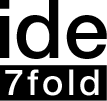1988 stuttgarter zeitung: hintze the golden flood
The golden flood. Book. Poems.
Kiepenheuer & Witsch. Cologne, 1987, 197 pages. ISBN 3-462-01815-9
---------------------------------------------------------------
Hannelore Schlaffer:
Green snow in the fire
Chr. I. Hintze poems
Our era is not fond of grand gestures. Rousing political speeches are seen as suspicious, touching speeches ridiculous, subjective exuberance is considered dishonest. When someone like Christian Ide Hintze walks the streets of Vienna and recites to passers-by his poetry of the great words, he is a guru, and so a more or less lovable fool; when he finally publishes his poetry in one volume, the verdict is already at hand: that’s all pompousness, kitsch, bombast.
In a literature in which only a "poetry of small talk” is welcome, in which a shamefaced feeling of love is already too much and the talk of food, drink, table, bed and chair serves as modernist counterpoint to the high style of tradition, all the poets in the tradition of lyrical pathos are also forgotten: Pindar, Klopstock, Whitman, Rilke, Eliot, Ginsberg, Brinkmann. In this tradition belongs Hintze's book "The Golden Flood," and should his work not reach the level of the greats of this genre, it can still be appreciated only in its own environment.
In any case, a guru Hintze is not; for his passionate prophecy is of the advent of a new lyrical age – and what religious leaders and do-gooders would place their bets on such a modest return! If Hintze declares to his native Vienna the beginning of a new poetic era and puts himself forth as the messiah of the new intensity, this is not then some hippie bliss but a rhetorical gesture, known from antiquity to the present day in the genre of the hymn. Allen Ginsberg was the last one who used this topos, for example in his “ego confession". "I want to be the spectacle of Poesy triumphant over trickery of the world / Omniscient breathing its own breath thru tear gas spy hallucination."
As a poet in the strictest sense of the word, as one therefore who is a specialist in language, who knows its traditions, its experiments – and continues with them – Hintze steps forth in the first sentence of his book: “As other poems have their provocation in a natural occurrence, in flirting, in an impulse to subversion, mine have their provocation in poems written by other poets before me, poets I revere as great poets." Hintze's models range from Sappho to Jimi Hendrix, from Rimbaud to Mao Tse Tung, from Ana Akhmatova to Yoko Ono. And so he places his words into a world-historical space, where they sound more cosmic than do the words of contemporary poetry. The poetry of the present alludes, at most, to a historical moment in the twentieth century, as Apollinaire, for example with his epochal poem "Zone" (1912), destroyed the syntactic rules of language and emotion and fractured the pathos, emotion and harmony of the poem by bringing to it an unknown brittleness, banality and discord.
This linguistic experiment from the beginning of the century is now being repeated in poetry with a mere craftsmanship that has become routine. As moderns we sense most easily the presence of a poem if it consists of incomplete sentences, syntactic disruptions, mangled metaphors and vague comparisons.
With Hintze, however, the grammar remains intact; he does not win the darkness and the mystery of his poetry through the destruction of the familiar instrument of language, but from the unwontedness of his visionary imagery. The simple, paratactic additions awaken first in readers and listeners the impression that the poet is speaking their language. Only through that which inspires him does he rise above the everyday.
The simplicity of the means and the darkness of the images indicate once again the hymnal style of this poetry: “Fields, grasses, tongues drift on the oceans. Green snow glows in the fires / Apple, coins, tears roll in the riverbed of the estuary to the spring. Green flames beat out from the ice mountains."
When the water flows back to the source, an end-time breaches the hymn. Apocalyptic weather crosses the landscapes of Hintze's poems: thunder, storms, mist, fog; hail drags over wastelands, seas, currents. The hymnal poet draws only on immense words, strong colours, sharp contrasts of light and dark, dramatic effects. Where he does not "gaze” on this, he falls back into the most mundane statements of everyday language. Between the naive simplicity of a statement – the description of a condition that says no more than: ‘I'm here’ – and an exalted situation, the structure of Hintze's poems therefore changes. These two approaches result in a refined rhythm of tension and relaxation, prophecy and responsibility, grandeur and banality.
Rolf Dieter Brinkmann was the last tentative representative of a high poetic style in contemporary German literature. His subjects were always political. After him began a period of lyrical reasoning, of broaching moral problems. The objects in Hintze's poems are not political, neither in the revolutionary nor in the moral sense. It would require rather a moralising interpretation to discern in these mystical tones any lament for the dying forest and the atomic blast.
What one can confidently make sense of does not account for the charm and the quality of this poetry. Its fascination lies in its singularity in the current scene, in which the poets are so cheerful, kind, and imitable; in the opaqueness of the ideas, the uninterpretableness of the meaning, in the sound of the words, the splendour of things, the lunacy of the attempt, here and now, to write a hymn. Perhaps Hintze is a Fitzcaraldo of language.
(Hannelore Schlaffer in: Stuttgarter Zeitung, 18 June 1988. Original language: german. Translated by ad hoc interpreters and translators gmbh, Vienna 2011)
